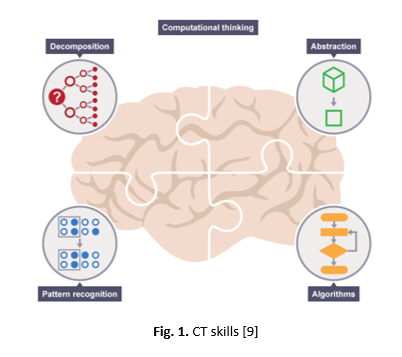A Recent Systematic Review of Computational Thinking in Higher Education
DOI:
https://doi.org/10.37934/araset.57.1.288305Keywords:
Computational thinking, Computational thinking skills, Higher education, Problem-solvingAbstract
Computational thinking (CT) has emerged as a vital skill in the rapidly evolving landscape of higher education. As higher education institutions grapple with the imperative to prepare students for a digitally driven future, understanding the landscape of CT integration becomes essential. This review addresses the need to systematically synthesize the literature to foster a deeper recognition of CT role in higher education. The Preferred Reporting Items for Systematic Reviews and Meta-Analyses (PRISMA) framework leads the systematic review process, establishing rigor as well as transparency in selecting and analysing relevant studies. Advanced searching techniques are employed to enhance the precision and inclusiveness of the literature search. The review specifically leverages the Web of Science (WoS) as well as Scopus databases, tapping into their extensive repositories of scholarly work. The selected theme is derived from the assessment of experts, guiding the decision-making process with their valuable insights and expertise. The results are organized into two key themes: (1) Technology’s Impact on CT and (2) Pedagogical approaches and educational strategies for CT. In conclusion, this systematic literature review adds to a contemporary understanding of the landscape of CT in higher education. By systematically reviewing recent research, the study provides valuable insights for educators, policymakers, and researchers alike. This review underscores the dynamic nature of CT implementation in higher education and emphasizes the importance of ongoing scholarship to inform effective educational practices.




























